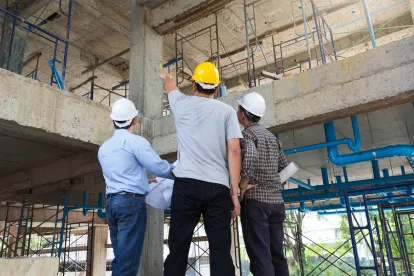When a party to a construction contract is faced with nonperformance of another party, often the desire to keep the project moving takes precedence in responding to the performance default. Problems arise, however, when the party who is owed the performance acts without first considering the terms and conditions of the written instruments governing the parties’ relationship on the project. For example, a construction contract may require the posting of payment and performance bonds guaranteeing, among other things, the performance of the bonded contract work by obligating the guarantor – a surety – to arrange for the completion of the work. Where a party fails to perform as promised, the party promised the performance should first review the language of both the construction agreement and any associated surety bonds before taking action, so as not to lose the benefits of the contract and/or bonds, as was the case in Arch Ins. Co. v. Graphic Builders, LLC, No. CV 19-12445-NMG, 2021 WL 534807 (D. Mass. Feb. 12, 2021).
Performance bonds almost universally contain one or more conditions precedent to trigger the surety’s obligations. Generally, courts interpreting such condition precedent language often require strict adherence to the condition’s language to trigger the bond’s obligations, which often leaves the beneficiary of the bond – the bond obligee – without a remedy.
The general contractor in Arch Ins. Co. was one such obligee. During the construction of an apartment building in the Charlestown section of Boston, the general contractor deemed the subcontractor in default when the general contractor discovered that rain leaked through 260 of the modular window units that the subcontractor fabricated, delivered, and began installing. Rather than terminate the subcontractor, the general contractor instead hired several third-party subcontractors at a cost of more than $2.8 million to remediate the defective work. According to the general contractor, terminating the defaulted subcontractor would have been “the equivalent of shooting [itself] in the face.” Though that may have been the case, the general contractor’s decision adversely affected its right to invoke the performance bond, as the document’s language obligated the surety’s performance only on the condition (common among performance bonds) that the general contractor terminate its subcontract with the subcontractor. The District Court agreed with the surety that its obligation had not been triggered, holding that the general contractor “indisputably failed to comply with a condition precedent and, therefore, cannot enforce the obligation of [the surety] to indemnify which arises pursuant to the Performance Bond and/or the incorporated subcontract.” The Court added that, for the same reason, the general contractor materially breached the bond’s terms, and discharged the surety from any and all liability, including investigating and indemnifying the general contractor’s claims of losses sustained.
In reaching its decision, the Court disregarded the general contractor’s argument that notwithstanding any conditions precedent, the surety had an independent duty to indemnify the cost of remediating the subcontractor’s faulty work. The general contractor has appealed the District Court’s order, and it remains to be seen whether the First Circuit will arrive at the same conclusion and perhaps address the general contractor’s independent duty argument.
Regardless, when faced with nonperformance, a party should carefully review the terms of a performance bond to determine what conditions precedent are necessary to obligate the surety’s performance. Failure to do so may have devastating consequences.


 />i
/>i

